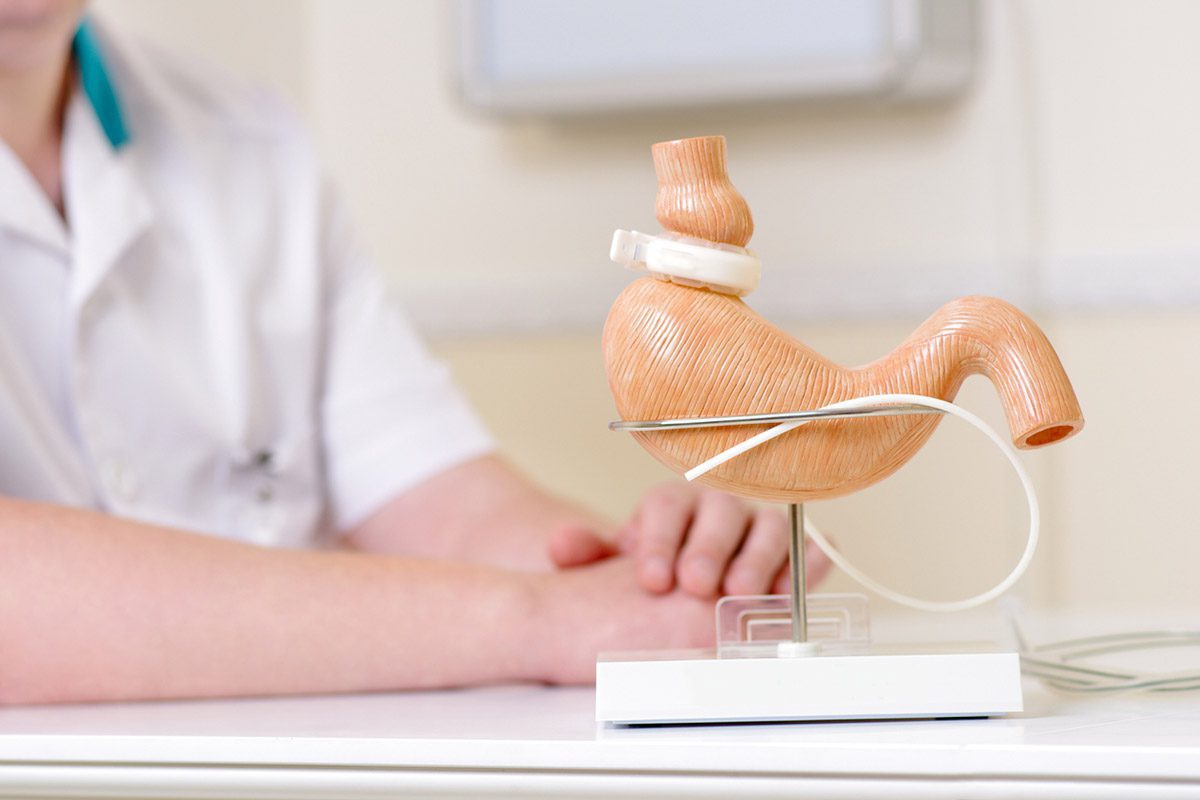Editor’s Note
This interesting letter by Murrough et al presented us with a dilemma. On the one hand it’s an interesting case, with a good outcome. Treatment-resistant depression is a huge public health burden, and options are many but confusing. Add to the positives that intravenous ketamine is intriguing, with encouraging results and a mechanism that differs from traditional antidepressants.
But this is only a single case, which means we can draw no conclusions. And some of the authors hold a use patent on ketamine (appropriately disclosed) and could profit from the agent if it is approved for marketing.
On balance, we chose to share it with our clinical readership—with the duly noted caveats.
© Copyright 2011 Physicians Postgraduate Press, Inc.
A Case of Sustained Remission Following an Acute Course of Ketamine in Treatment-Resistant Depression
To the Editor: Recent reports suggest that the N-methyl-d-aspartate (NMDA) glutamate receptor antagonist ketamine is able to rapidly reduce depressive symptoms in patients with major depressive disorder (MDD), even in treatment-resistant cases.1-4 However, the duration of antidepressant benefit following ketamine remains unclear. Reports of persistent antidepressant effects following a single dose of ketamine have generally varied from several days to more than a week in some cases.1,2
The issue of durability of benefit following ketamine treatment is critical to evaluating the drug’s potential clinical utility. In this case report, we describe a patient with chronic, treatment-resistant major depression (TRD) who experienced a remission from her depressive symptoms for 3 months following a series of ketamine infusions in the absence of concomitant antidepressant medication.
Case report. Ms A, a 45-year-old white, college-educated woman, presented to our research clinic with long-standing symptoms of pervasive low mood, anhedonia, thoughts of death, poor concentration, fatigue, low energy, and insomnia. Ms A suffered significant functional impairment related to her depression, which included a severely restricted range of activities and social relationships. She had thoughts of death daily and described her life as "not worth living." Her current depressive episode began 15 years prior to presentation and had persisted without relief despite treatment with multiple antidepressants and augmenting agents.
A diagnosis of MDD, recurrent, severe, was confirmed with the Structured Clinical Interview for DSM-IV,5 and her score on the Inventory of Depressive Symptomatology-Clinician Rated (IDS-C30) was 54, consistent with a high degree of severity.6 Ms A had failed to respond to a total of 9 adequate antidepressant trials in the current episode based on the antidepressant treatment history form (ATHF),7 including trials of fluoxetine, paroxetine, sertraline, venlafaxine, bupropion, imipramine, nortriptyline, phenelzine, and tranylcypromine. Augmentation strategies had included trials of lithium, thyroid hormone, risperidone, and methylphenidate. After providing informed consent, Ms A was enrolled in a repeated-dose ketamine protocol modeled after an acute course of electroconvulsive therapy, consisting of 3-times-weekly (Monday, Wednesday, Friday) intravenous infusions (0.5 mg/kg) over 2 weeks.4 Symptom change was measured using the Montgomery-Asberg Depression Rating Scale (MADRS).8 Throughout the treatment course and follow-up period, Ms A remained free of concomitant antidepressant medications.
Ms A’s MADRS score went from 44 to 5 (89% change) 24 hours following the first of 6 doses of ketamine, and her remission continued for the duration of the protocol. Within hours of the first infusion, Ms A experienced a marked reduction in her depressive symptoms, including improved mood, energy, and sense of self-worth. She was able to engage in several activities that she had previously enjoyed when she was well but had not been able to do during her depressive episode, including kayaking, bike riding, and participating in social gatherings. Perhaps most striking was a complete resolution of her chronic thoughts of death, consistent with a previous report of the specific effects of ketamine on suicidal cognitions.9
Ms A elected to remain free of antidepressant medication following the end of the 2-week ketamine protocol and agreed to continue to be followed naturalistically by one of the study investigators (J.W.M.) with regular symptom measurements utilizing the Quick Inventory of Depressive Symptomatology-Self-Report (QIDS-SR).10 Her remission from depression was documented to continue for a period of 3 months (QIDS-SR score < 7), at which point Ms A began to experience a gradual return of her symptoms. Pharmacotherapy with the NMDA receptor antagonist memantine was initiated and titrated to a dose of 40 mg daily with partial clinical effect over the next 2 months (QIDS-SR score ranged from 9 to 15). Additional pharmacotherapy over the 6 months that followed included desvenlafaxine 50 mg daily, aripiprazole 10 mg daily, and modafinil 200 mg daily, although Ms A unfortunately continued to struggle with significant depressive symptoms (QIDS-SR score > 15).
Mechanisms related to durability of response following ketamine remain uncertain. However, NMDA receptor antagonists are known to induce neurogenesis and exert lasting neurotrophic effects in animals.11,12 Ketamine in particular has been shown to increase levels of hippocampal brain-derived neurotrophic factor (BDNF) expression attendant with its antidepressant effects in a rat forced-swim depression model,13 although a recent study found no effect of ketamine on acute changes in plasma BDNF levels.14 Data also suggest that ketamine may induce neuroadaptive changes through non-BDNF pathways.15,16
This case highlights the potential for a pharmacologic agent impacting the glutamate system to yield sustained antidepressant benefit in a patient with a long history of treatment resistance. Future controlled studies clarifying the durability of response to ketamine will be important in evaluating its potential clinical utility in TRD.
References
1. Berman RM, Cappiello A, Anand A, et al. Antidepressant effects of ketamine in depressed patients. Biol Psychiatry. 2000;47(4):351-354. PubMed doi:10.1016/S0006-3223(99)00230-9
2. Zarate CA Jr, Singh JB, Carlson PJ, et al. A randomized trial of an N-methyl-D-aspartate antagonist in treatment-resistant major depression. Arch Gen Psychiatry. 2006;63(8):856-864. PubMed doi:10.1001/archpsyc.63.8.856
3. Mathew SJ, Murrough JW, aan het Rot M, et al. Riluzole for relapse prevention following intravenous ketamine in treatment-resistant depression: a pilot randomized, placebo-controlled continuation trial. Int J Neuropsychopharmacol. 2010;13(1):71-82. PubMed doi:10.1017/S1461145709000169
4. aan het Rot M, Collins KA, Murrough JW, et al. Safety and efficacy of repeated-dose intravenous ketamine for treatment-resistant depression. Biol Psychiatry. 2010;67(2):139-145. PubMed doi:10.1016/j.biopsych.2009.08.038
5. First MB, Spitzer RL, Gibbon M, et al. Structured Clinical Interview for DSM-IV Axis Disorders. New York, NY: State Psychiatric Institute, Biometrics Research; 1995.
6. Rush AJ, Gullion CM, Basco MR, et al. The Inventory of Depressive Symptomatology (IDS): psychometric properties. Psychol Med. 1996;26(3):477-486. PubMed doi:10.1017/S0033291700035558
7. Sackeim HA. The definition and meaning of treatment-resistant depression. J Clin Psychiatry. 2001;62(suppl 16):10-17. PubMed
8. Montgomery SA, Asberg M. A new depression scale designed to be sensitive to change. Br J Psychiatry. 1979;134(4):382-389. PubMed doi:10.1192/bjp.134.4.382
9. Price RB, Nock MK, Charney DS, et al. Effects of intravenous ketamine on explicit and implicit measures of suicidality in treatment-resistant depression. Biol Psychiatry. 2009;66(5):522-526. PubMed doi:10.1016/j.biopsych.2009.04.029
10. Rush AJ, Trivedi MH, Ibrahim HM, et al. The 16-Item Quick Inventory of Depressive Symptomatology (QIDS), Clinician rating (QIDS-C), and Self-Report (QIDS-SR): a psychometric evaluation in patients with chronic major depression. Biol Psychiatry. 2003;54(5):573-583. PubMed doi:10.1016/S0006-3223(02)01866-8
11. Javitt DC. Glutamate as a therapeutic target in psychiatric disorders. Mol Psychiatry. 2004;9(11):984-997, 979. PubMed doi:10.1038/sj.mp.4001551
12. Nacher J, Rosell DR, Alonso-Llosa G, et al. NMDA receptor antagonist treatment induces a long-lasting increase in the number of proliferating cells, PSA-NCAM-immunoreactive granule neurons and radial glia in the adult rat dentate gyrus. Eur J Neurosci. 2001;13(3):512-520. PubMed doi:10.1046/j.0953-816x.2000.01424.x
13. Garcia LS, Comim CM, Valvassori SS, et al. Acute administration of ketamine induces antidepressant-like effects in the forced swimming test and increases BDNF levels in the rat hippocampus. Prog Neuropsychopharmacol Biol Psychiatry. 2008;32(1):140-144. PubMed doi:10.1016/j.pnpbp.2007.07.027
14. Machado-Vieira R, Yuan P, Brutsche N, et al. Brain-derived neurotrophic factor and initial antidepressant response to an N-methyl-d-aspartate antagonist. J Clin Psychiatry. 2009;70(12):1662-1666. PubMed doi:10.4088/JCP.08m04659
15. Maeng S, Zarate CA Jr, Du J, et al. Cellular mechanisms underlying the antidepressant effects of ketamine: role of alpha-amino-3-hydroxy-5-methylisoxazole-4-propionic acid receptors. Biol Psychiatry. 2008;63(4):349-352. PubMed doi:10.1016/j.biopsych.2007.05.028
16. Machado-Vieira R, Salvadore G, Diazgranados N, et al. Ketamine and the next generation of antidepressants with a rapid onset of action. Pharmacol Ther. 2009;123(2):143-150. PubMed doi:10.1016/j.pharmthera.2009.02.010
Author affiliations: Mood and Anxiety Disorders Program, Department of Psychiatry (Drs Murrough, Mathew, and Charney); Department of Anesthesiology (Dr Perez); Departments of Neuroscience and Pharmacology & Systems Therapeutics (Dr Charney), Mount Sinai School of Medicine, New York, New York; and Department of Psychiatry and Behavioral Sciences, Baylor College of Medicine, Houston, Texas (Dr Mathew). Potential conflicts of interest: Drs Murrough and Perez report no interests to disclose. In the past 12 months, Dr Mathew has received research support from GlaxoSmithKline and has received consulting or lecture fees from AstraZeneca, Merck, and Pfizer. Drs Charney and Mathew have been named as inventors on a use-patent of ketamine for the treatment of depression. If ketamine were shown to be effective in the treatment of depression and received approval from the US Food and Drug Administration for this indication, Dr Charney and the Mount Sinai School of Medicine could benefit financially. Dr Mathew has relinquished his claim to any royalties and will not benefit financially if ketamine is approved for this use. Funding/support: Research funding related to this report was provided by the National Alliance for Research on Depression and Schizophrenia (NARSAD) (Dr Charney) and by grant MO1-RR-0071 from the National Center for Research Resources (NCRR), a component of the National Institutes of Health (NIH). Dr Murrough receives salary support through a Mount Sinai School of Medicine Research Fellowship funded by a grant from AstraZeneca. Dr Mathew is supported by grant K23-MH-069656 from the National Institute of Mental Health and a Young Investigator Award from NARSAD. Previous presentation: Case presented at the 63rd Scientific Meeting of the Society of Biological Psychiatry; 2008; Washington, DC, and at the 47th Meeting of the American College of Neuropsychopharmacology; 2008; Scottsdale, Arizona. Trial Registration: ClinicalTrials.gov Identifier NCT00548964.
doi:10.4088/JCP.10l06447blu
© Copyright 2011 Physicians Postgraduate Press, Inc.





